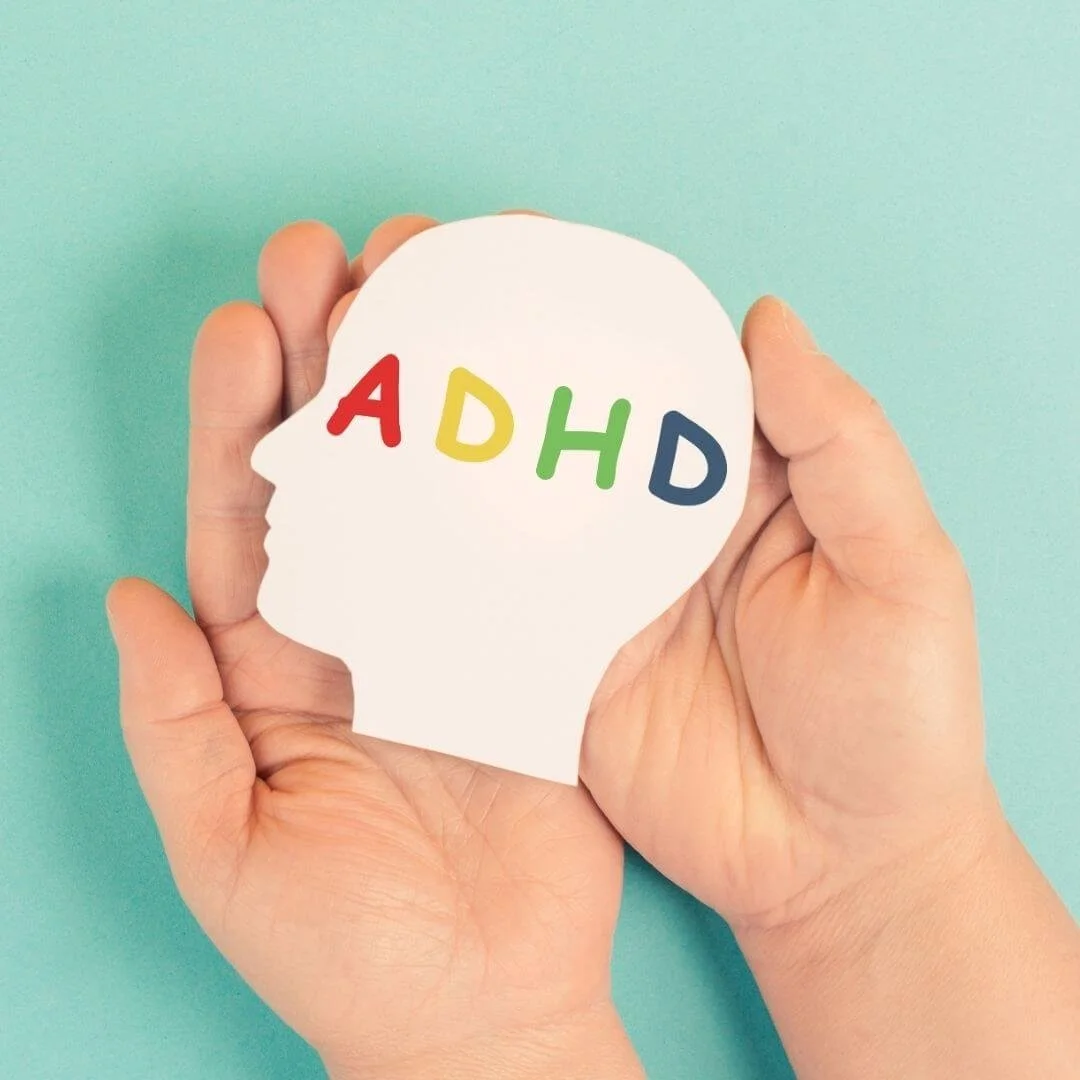Breaking Down Barriers: Addressing Misconceptions About Neurodiversity
Neurodiversity is about the natural and important differences in how our brains work. These differences can affect things like how we socialize, learn, pay attention, and feel. It's like how biodiversity in nature makes the world more interesting. Neurodiversity is the same for humans. It's a way of respecting and celebrating our differences, instead of thinking there's something wrong with us.
But some people don't understand neurodiversity and that can lead to discrimination. And even leaving people out. It's important to understand the truth and correct any wrong ideas. That way, we can build a society where everyone, no matter how their brain works, can be included and do well. Understanding neurodiversity isn't just about saying it's okay to be different. It's about celebrating our differences because that's what makes us special.
What is Neurodiversity?
Neurodiversity is an idea that says it's okay to be different, especially when it comes to our brains. Some people have Dyspraxia, Dyslexia, Attention Deficit Hyperactivity Disorder, Dyscalculia, Autistic Spectrum, Tourette Syndrome, or other unique ways of thinking. The neurodiversity perspective believes that our brains are as special as we are, and we shouldn't try to change them. Instead, we should accept and respect our differences as a natural part of being human.
Embracing these brain differences means understanding the unique perspectives and skills that people with diverse brains bring. When we include everyone, we show that diversity is important and give everyone a chance to contribute. Recognizing our differences helps create a society full of great ideas, new ways of thinking, and lots of creativity. It's really important to remember that embracing neurodiversity isn't just about tolerating differences. It's about fully accepting and appreciating them. When a society truly embraces neurodiversity, it means valuing and celebrating the unique qualities that each person brings, without trying to make them fit into a specific mold. It's about creating a welcoming environment where everyone feels valued and has the chance to succeed.
Common Misunderstandings About Neurodiversity
There are several misunderstandings about neurodiversity in San Antonio, TX, and the rest of the world. Unfortunately, this can lead to discrimination and exclusion, stigma, and bias. Proving these myths wrong is essential to encourage a more inclusive and accepting society.
Misunderstanding #1: Neurodiversity is a Disorder
Let's start by clarifying one of the most common misunderstandings: neurodiversity is not a disorder. It's important to understand that neurodiversity refers to the different ways our brains work, which doesn't mean there's something wrong with them. Think of it like a forest. In a forest, there are many different types of plants, animals, and ecosystems. And they all contribute to the richness and balance of life.
Similarly, neurodiversity is about the variety in how our brains function. Each type of brain brings its own unique perspective and strengths. Conditions like Dyspraxia, Dyslexia, ADHD, Autistic Spectrum, Tourette Syndrome, and others are not disorders. They are simply different ways our brains work. We should respect and celebrate these differences as part of what makes us human.
Misunderstanding #2: Neurodivergent Individuals are All the Same
Another common myth is that all neurodivergent people are identical. This is completely false. Just like not all neurotypical individuals are the same, the same goes for neurodivergent individuals. People who are neurodivergent, like those with Dyspraxia, Dyslexia, ADHD, Autistic Spectrum, or Tourette Syndrome, are just as diverse within their communities as anyone else. Each person has their own unique abilities, strengths, and challenges.
Let's take a look at two people with Autism Spectrum Disorder, for instance. One might not talk and do things repetitively, while the other might have a large vocabulary, not do repetitive things, but have trouble with making friends. Dyslexia is another example, where it can affect people in different ways. It can make reading, writing, spelling, or even numbers more difficult, but to different extents. The different types of people in neurodivergent communities show why it's important not to group everyone together. Or assume things based on labels. This is why neurodiversity in San Antonio, TX and other places is so crucial. It helps break down stereotypes and recognize the unique strengths of individuals.
Misunderstanding #3: Neurodiversity is Just About Autism
Many people think that neurodiversity only relates to autism. That's not true. Autism is just one part of the bigger picture. Neurodiversity includes a wide range of conditions like Dyspraxia, Dyslexia, ADHD, Dyscalculia, and Tourette Syndrome. It's important to understand that neurodiversity covers a spectrum of differences.
Neurodiversity is a big word that means the different ways our brains work. It's all about how each person's brain is unique and special. Instead of focusing on what makes someone different, we should celebrate their strengths and what they can do. We all have different ways of seeing and participating in the world, which makes us special. That is why neurodiverse therapy in San Antonio, TX is essential. It helps individuals learn how to navigate and embrace their unique brains while also helping others understand and appreciate neurodiversity.
Dispelling Misunderstandings: Facts and Evidence
Did you know that our brains are as diverse as our bodies? Scientific research has shown that neurodiversity is not a disorder but a natural and valuable form of human diversity. Neurodiversity means that each person's brain has its own unique strengths and weaknesses. For example, individuals with dyslexia often excel in spatial reasoning, while those with ADHD have shown strengths in creative problem-solving. This evidence challenges common misconceptions about neurodiversity and highlights its importance in our society.
People who are neurodivergent have their own personal stories that show how wrong these misconceptions are. For example, successful individuals with dyslexia like Richard Branson and Steve Jobs. Or individuals with autism like Greta Thunberg or Temple Grandin. They have achieved amazing things with the right support and resources. Their unique perspectives have greatly contributed to our progress as humans. Neurodiversity in San Antonio, TX, and beyond has the potential to unlock new ideas and solutions for our world. It's time to embrace neurodiversity and recognize its benefits.
Several Organizations and Initiatives Actively Work to Promote Neurodiversity Awareness.
The National Center for Learning Disabilities (NCLD) helps parents, teachers, grown-ups, and experts to make life better for all people with learning and attention issues. They provide resources to support them. The Autism Self Advocacy Network (ASAN) helps Autistic people all around the world. They want Autistic people to be in charge of their own lives and the future of their community. These groups show that when communities and societies are inclusive and accepting, embracing neurodiversity is possible and helpful. It's important to understand and accept everyone, no matter how their brains work.
Promoting neurodiversity is no longer an option. It is a necessity to create a fair and inclusive society where everyone's individual strengths are recognized and nurtured. The concept of neurodiversity sheds light on the need for broader societal change in how we perceive cognitive differences, moving away from a deficit-based model to one that values diversity and uniqueness. This shift requires concerted efforts from all educators, employers, policymakers, and society as a whole. All to create an environment where neurodivergent individuals can thrive. Remember, when we embrace diversity, we foster growth, innovation, and human enrichment. And neurodiversity is a crucial part of that diversity.
The Benefits of Embracing Neurodiversity
Embracing neurodiversity in San Antonio, TX, and all over the world is super important for our workplaces and communities. Lots of research says that people who think differently can bring new ideas and help our society a lot. When we make places where everyone feels included, it makes us more creative, productive, and understanding. Being inclusive isn't just the right thing to do - it's also super smart!
When we include everyone at work and in our communities, it sparks all kinds of cool and creative ideas. People who think differently, like those with neurodiversity, can bring new perspectives that help solve problems in unique ways. This mix of different thoughts and ideas makes us super innovative and helps us reach new levels of success! People who think differently have always added something special to society. They have their own way of thinking that can help us see things in a new light. This often leads to amazing discoveries and ideas. Being able to think creatively is important in all areas of life, like art, science, and business.
Ultimately, embracing neurodiversity fosters a culture of acceptance, innovation, and shared success. The unique perspectives and problem-solving abilities of neurodivergent individuals are key drivers of creativity and invention. By challenging long-held misconceptions and fostering inclusivity, we not only affirm the dignity and worth of every individual, but we also unlock the full potential of our communities and workplaces. Let's remember, that diversity is not just our reality—it's our greatest strength.
Learn More About Being Neurodiverse in San Antonio, TX
If you or someone you know is neurodiverse, it's important to learn more about what that means and how to embrace it. There are plenty of resources available in San Antonio, TX and beyond that can help individuals understand their unique brains and thrive in their communities. At Monarch Behavioral Health, our team of experienced therapists provides neurodiverse therapy in San Antonio, TX to support individuals in navigating their unique strengths and challenges. We know that embracing neurodiversity is key to promoting a more inclusive and accepting society. So let's continue to educate ourselves, challenge misconceptions, and celebrate the diversity of our minds! If you are seeking understanding and support, you can follow these steps:
Contact our therapy office and learn more about our services
Click here for more about our team
Embrace neurodiversity in your own community and workplace!
Start Other Therapy Services Offered at Monarch Behavioral Health
Our therapists at Monarch Behavioral Health in San Antonio, Texas understand the importance of catering to a variety of mental health needs. Just because you're neurodiverse, doesn't mean you can't benefit from other therapy services. We offer various mental health services for children, adolescents, adults, and families to help address a wide range of mental health concerns. Our therapy services include Anxiety Treatment, Depression Treatment, Trauma Therapy, Play Therapy, Family Therapy, and more. Our team is dedicated to providing support for any struggle you and your family may be facing. Our therapists also offer therapy for children, teens, and adults of all ages. Support your loved ones by creating a safe and accepting environment that embraces neurodiversity. Contact us to schedule an appointment and learn more about our neurodiverse therapy in San Antonio, TX.



